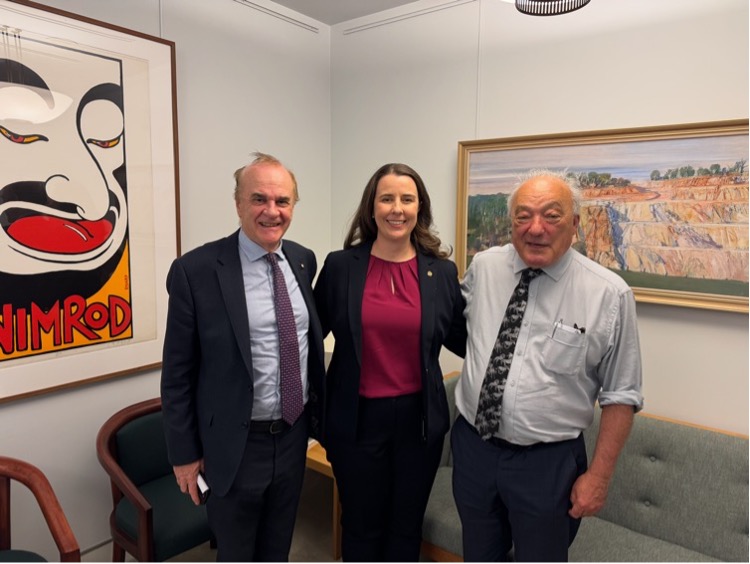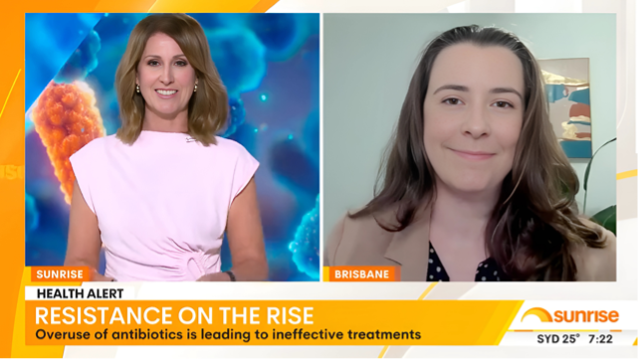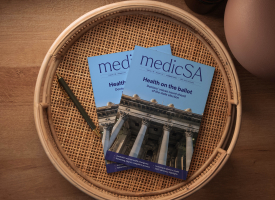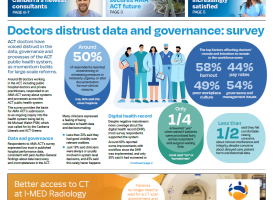President’s update: more scope meetings, workforce issues and protecting the title of ‘doctor’
AMA President Dr Danielle McMullen provides members with an overview of the past week.

Well, the past week was a blur! In and out of airports, an unscheduled overnight in Sydney (thank you Dr Michael Bonning for the midnight offer of a spare room to crash in!), and a huge week of representing you at different forums, and hearing from the future of our profession
A definite highlight of the week was our combined meeting of the Council of Doctors in Training and our Equity, Inclusion and Diversity Committee. While the fears and nervousness about the future of healthcare in Australia can sometimes take over our concerns, the weekend reminded me that our future is in very good hands. We had such bright, enthusiastic discussions about how we take a good system and make it better, and how we can work to ensure that our AMA and the system we work in meets the needs of all our doctors and the patients we treat.
We heard from acting CMO Dr Susan Wearne about medical workforce data, particularly in our hospitals. We had a frank talk about how our system needs to change to provide safe, supportive working environments and meet patient need — particularly in regional and rural areas. We had big picture discussions about the role of generalism in a world where subspecialist care is getting more and more complex, and about the workforce and patient expectations of the future.
Scope of practice was a key area of discussion again this week — not just at CDT but also in multiple meetings with the Department of Health and Aged Care (DoHAC). It is critical that our patients understand who they are seeing. Yet right now there are far too many reports from overseas of patients being unsure whether their care is from a doctor, a nurse/nurse practitioner or even a physician’s assistant. With increasing pressure on our medical workforce here, our state governments have reacted with knee-jerk policy responses of expanded scope. This response risks patient safety, fragmentation of care, poor patient outcomes and greater costs to the healthcare system in the long term. Not to mention the news later this week that some pharmacists may in future be able to use the title Doctor – rest assured we don’t agree with this proposal and will fight to ensure that patients understand who they are seeing for care – title is an important safety measure and worth fighting for.
One recommendation from the latest scope of practice report, which is getting the most airtime, is direct referrals from non-medical healthcare workers to non-GP specialists. I have spent the last two weeks explaining to media, the DoHAC and politicians the pitfalls of this. It will result in greater waiting times for patients, further congestion of the healthcare system, higher costs and greater delays to care, stemming from the lack of understanding of GP scope and the risks of misdiagnosis when doctors aren’t in the loop of care. We need governments to stop looking for a shiny new thing, and instead invest where we know it works — general practice as the cornerstone of healthcare, and the lead in strong, connected teams.
The safety of doctors is of critical importance. This week we launched our Managing and responding to violence in the medical workplace position statement and received excellent attention in the media on this important issue. Our position statement outlines how health employers and governments can act now to protect doctors from violence. Doctor mental health is of equal importance, and the National Leadership Alliance has developed an action plan for the Every Doctor, Every Setting Framework. This framework steps through what actions our system can take to improve doctors health, from primary prevention, to healthcare and return to work. It generated a great deal of discussion and support at CDT and EIDC, as well as at the Council of Presidents of Medical Colleges (CPMC) which I attended last week. I encourage all of you to have a read (I promise, its short) and raise this framework of thinking in your hospitals and organisations.
I was in Canberra at the start of the week for important meetings with the government and DoHAC. We had a meeting with Labor MP Dr Mike Freelander and others with the department, all of which covered the pressing issue of scope of practice and the importance of GPs at the coalface of healthcare, and raised our priority areas for health spending as we start to lead into the next federal budget and federal election.

I’ve been in the media this week talking about a number of issues including National Skin Cancer Action Week and the importance of seeing your GP to get a skin check. We’ve had a lot of coverage following our media release on Antimicrobial Awareness Week and reminding audiences of our research report on AMR, including an early morning chat with Channel 7’s Sunrise and on our submission to the National Suicide Prevention Office’s draft Advice on the National Suicide Prevention Strategy with front page coverage in The Australian newspaper.

I’ve also been speaking with SBS about the impacts that costs of living pressures are having on Australians who have been skipping medicines and treatment, and Channel 9 about the impacts of violence against healthcare workers in the workplace.
As you can see, the pace rarely slows at Federal AMA but we wouldn’t have it any other way. I look forward to sharing all your AMA does for you, the profession, and patients this time next week.



